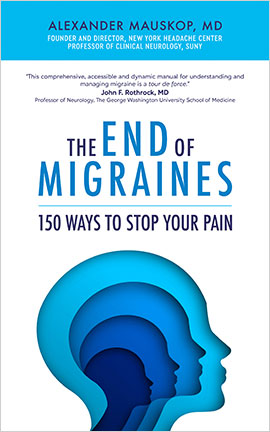If you have migraine and fatigue you’re not alone. Fatigue is one of the most common invisible symptoms of migraine. It has been found to occur in as many as 70% of migraine patients. (1) To make things more complicated fatigue can trigger a migraine attack, though it most often comes as a result of one. Fatigue is more than the tiredness that someone without chronic illness feels after a hard workout or a long day at the office. Fatigue is also not just sleepiness. It can’t be alleviated by a good night’s sleep. It’s muscle weakness, a deep lack of energy, alertness and strength. Migraine and fatigue are always there like a heavy weight we’re carrying around.
Migraine and fatigue affect not only our bodies but our mental wellness as well. Fatigue is difficult to define within the medical profession. But, in general terms it can be physical like difficulty starting or maintaining activity. Migraine and fatigue can also be trouble concentrating, recalling memories and even regulating our emotions. For many it goes beyond these definitions. Migraine patients report deep mental and physical exhaustion. They have said they can barely lift their arms and barely stand up let alone walk across their home. Fatigue makes it difficult to eat, shower and engage in conversation. If it’s not addressed it can lead to isolation, activity avoidance and cancelled plans with friends and family.
While Migraine Strong writes about the latest in migraine treatments, this is not medical advice. We are patient educators and all information you read should be discussed with your doctor.
So why are migraines so exhausting?
The general consensus is that medical researchers don’t really know what causes fatigue. What we do know is that it takes a lot of energy for your body to fight off pain. The worst fatigue I’ve ever experienced was when I was dizzy all day for many months with vestibular migraine. I remember asking the doctor what I could do about it. His response was that it takes a lot of energy for your body to compensate for daily dizziness. While we are going to discuss many strategies to ease fatigue below, the number one thing you can do to fight migraine and fatigue is to get control over your symptoms. Talk with your doctor about your migraine preventative treatment plan and be sure it includes many pieces of the treatment pie.
If you are working your preventative treatment plan and are still experiencing debilitating symptoms don’t lose hope. One study found using Interventions to prevent migraine are likely to lessen fatigue and improve quality of life. (2) And there are many strategies you can implement to reduce the impact that migraine and fatigue have on your daily life. Stay with me as we discuss steps you can take to increase your energy levels so you are ready when the next attack strikes.
8 Strategies to lessen migraine and fatigue
1- Hydrate
Migraine and fatigue can be brought on simply due to dehydration. Making sure you’re adequately hydrated is one of the most effective strategies to prevent both. While this is one of the easiest strategies on the list, for some reason it’s also one of the most difficult! I have such a hard time drinking the recommended amount of water daily. Right now I’m obsessed with these water bottles that keep me encouraged to keep striving for this goal.
2- Diet
Why does managing migraine and fatigue always seem to come back to diet? It’s a critically important strategy in improving your quality of life with chronic illness and pain. Eating a well-balanced diet that includes protein and a variety of colorful fruits and vegetables will ensure your body has what it needs to recover from migraine attacks. I find eating protein to be essential in my recovery process.
3- Gentle movement for both migraine and fatigue
While movement is so incredibly difficult when you’re experiencing deep fatigue it is one of the most proven strategies to eliminate it. This doesn’t mean you need should sign up for a 5k or accept that CrossFit invitation from your friends. Instead focus on gradual exercise therapy. Start very slowly, even with gentle stretching and work towards a gradual increase and buildup of activity over time. It’s important to stop before extreme fatigue sets in. Yoga is particularly helpful movement in easing fatigue. If movement is making you more tired, it’s a sign you’re pushing too hard.
Focused and intentional movement is also a strategy to help prevent migraine.
4- Evidence-based nutritional supplements
- Vitamin D- Excessive tiredness is a sign of a vitamin D deficiency. So many with migraine seem to be chronically low in vitamin D. Talk with your doctor about having your vitamin levels checked and working to maintain optimum vitamin D levels.
- B12 is well known for its ability to improve energy. B vitamins have personally helped me so much to combat fatigue, increasing my energy and reduce the tiredness I experience taking nortriptyline. I use Pure Encapsulations B Complex Plus.
- Magnesium threonate is another a great supplement to increase energy. A key role of magnesium is to convert the glucose in food into energy. Magnesium can help keep energy levels stable and prevent the onset of fatigue. I use Pure Encapsulations CogniMag.
5- Energizing essential oils
Scents can influence the way we feel. To promote physical energy, diffuse essential oils that some report boosts healthy energy like sweet orange oil, cinnamon or rosemary. To encourage mental energy consider trying a product like Forces of Nature – Focus More rollerball. You can save 20% on your FON purchases with code NATUREMS19. Have you read our recent article packed with information on using essential oils to help ease migraine symptoms?
6- Cognitive behavioral therapy
Because chronic illness like migraine and fatigue can impact our mental wellness, this is a great strategy to try. Cognitive behavioral therapy can help improve your feelings around migraine and fatigue and help you define personal health goals.
7- Consider other factors
For many of us, part of living with chronic illness is taking medication to manage it. Some of these medications can contribute to the fatigue we experience. When I first started taking nortriptyline to prevent chronic vestibular migraine I could barely function. I was advised to take my medication at bedtime, but I found that late night dose was making me much to tired the following day.
My doctor determined we could either split the dose by taking help in the morning and half at night or push my dose time back. I decided to take my medication around 6 or 7pm instead of bedtime and it significantly reduced the fatigue I experienced as a result of it. In addition to considering the time of day you take your medication we also recommend you ask your doctor about beginning medications at a very low dose and very slowly bumping your dose to the therapeutic level for migraine prevention. Taking the time you need to fully adjust to each dose bump will ensure greater success on the medication and reduce the effects of side effects like fatigue.
8- Take the time you need to recharge
We’ve talked a lot about migraine and deep fatigue so let’s address the glaring opposite of that which is deep rest. How good are you at doing nothing?
You know what’s necessary for wellness? Pushing pause on that voice in the back of our heads that tells us unless we’re doing something productive we’re unlovable or worthless. The message that tells us that doing nothing is bad for us is a lie, especially if you’re living with chronic illness. Allowing ourselves permission for deep rest is vital. It’s every bit as important for your health as “the doing” you tell yourself you must do. So intentionally cultivate the space and time you need for deep rest.
Ways to create deep rest
- Turn off social media and other electronics.
- Put on your comfiest, non-restrictive clothing.
- Take a shower and add eucalyptus drops to the shower floor.
- Use the power of music and have relaxing sound playing low in the background.
- Connect with nature whether it’s relaxing on the beach or just throwing a blanket out in your back yard where you can listen to the birds and feel the warmth of the sun on your face.
- Use the help of technology by asking Alexa to play nature sounds, binaural beats or read you a sleep story. Download an app like Calm or Headspace to help you turn off those to do lists.
- Avoid caffeine and alcohol.
- Prepare a space in your home to encourage deep relaxation. Add calming décor, soft pillows and fuzzy blankets.
Not all causes of fatigue are treatable on your own. If you are experiencing persistent fatigue, it’s important to discuss it with your doctor to eliminate other underlying causes and to create a plan to alleviate it. Try your best to avoid getting discouraged. As you treat and prevent your migraine attacks, your symptoms of fatigue should improve with it.


